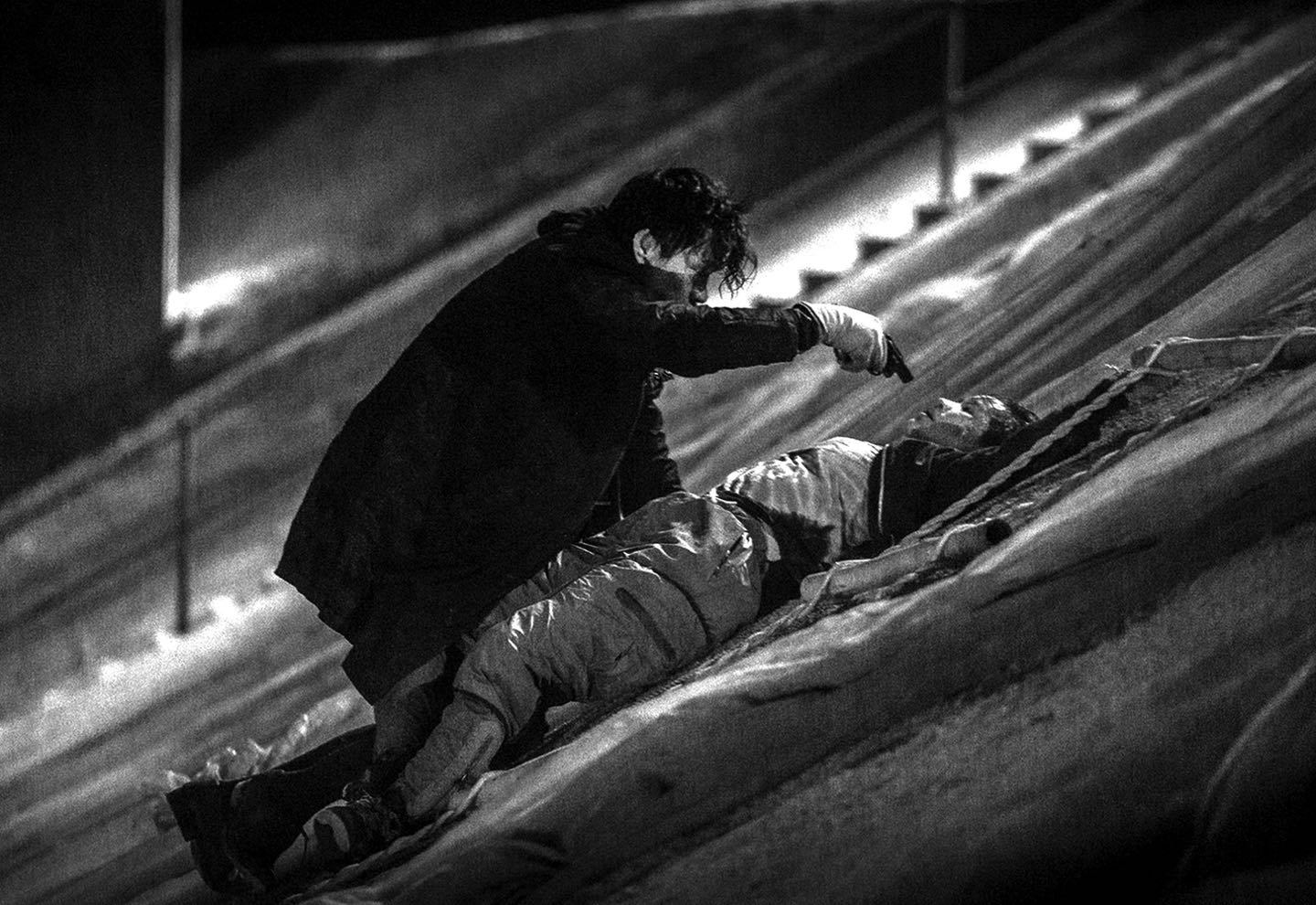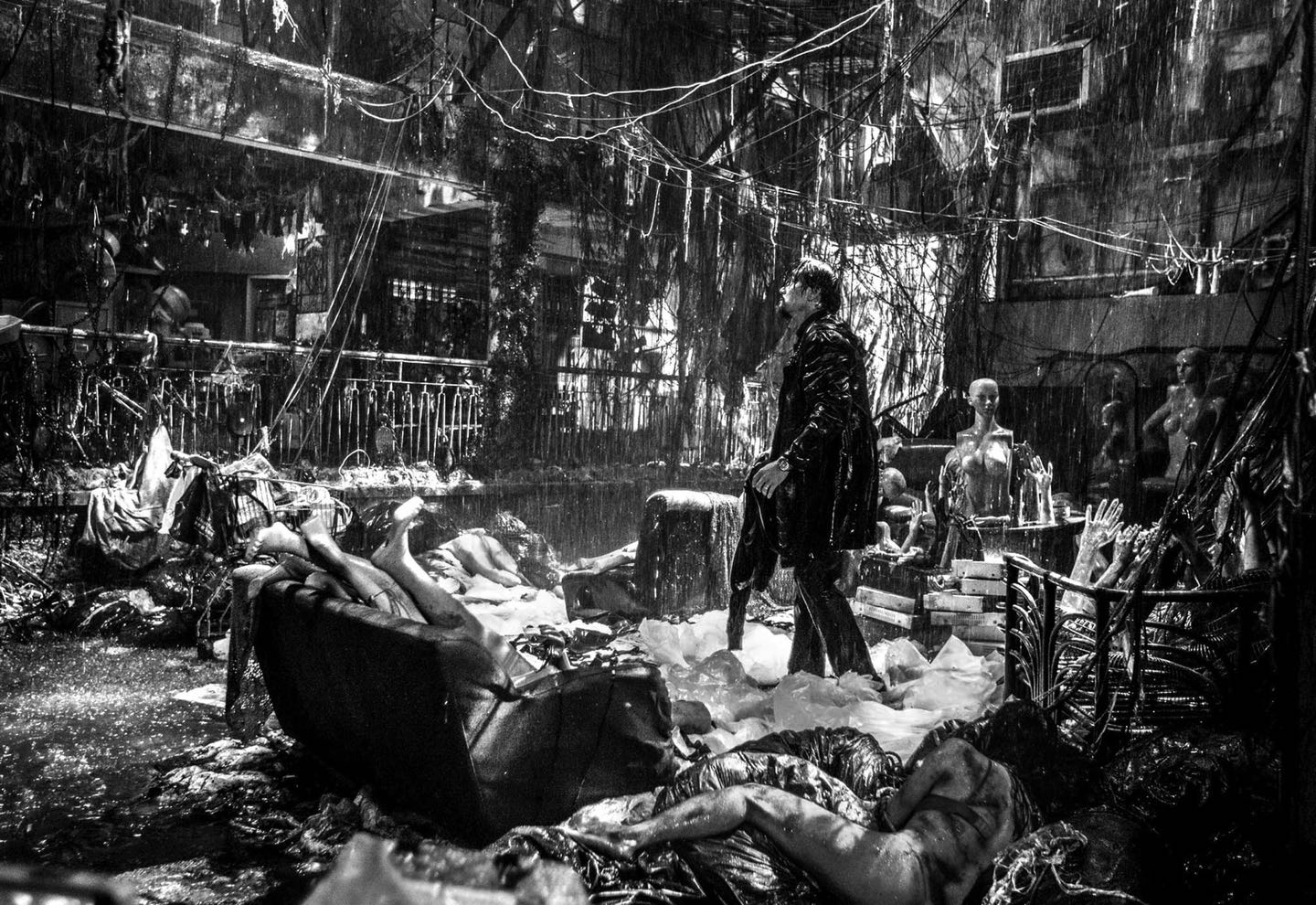
Many Hong Kong films made in the late 2010s have seemingly gone missing. These mid-to-big-budget productions, most of them partially funded by Chinese studios, need the Mainland Chinese market to recoup their budgets, as Hong Kong’s is nowhere near big enough. However, due to China’s volatile censorship board constantly moving the goalposts on what’s allowed in theaters, and the months-long closures of Chinese cinemas from sudden COVID lockdowns, these films have been stuck in limbo, waiting for release dates to no end.
One such “missing” movie is the appropriately titled Limbo. Once it became clear that the category III film (the equivalent of NC-17 in the US) was never going to make it through China’s censors, the producers took it to the Berlin Film Festival and released it only in Hong Kong theaters. They took a massive financial hit as everyone had feared, but, if there is any reassurance, the film has since received immense critical acclaim. Director Soi Cheang tells the story of a low-level gangstress named To (Cya Liu) who helps a weathered, hateful detective named Cham (Gordon Lam Ka-tung) trace a fetishistic serial killer because of a shocking debt she owes him. Limbo is Hong Kong crime cinema at its well-oiled best—some hackneyed, lazy storytelling, but with a damning pessimism for the city, and the best-looking shots coming from Hong Kong in years.
Jeweled Trash

Limbo is first and foremost an aesthetic achievement. A 100% black-and-white film from start to finish is rarer than a blue moon in the Hong Kong film industry. Limbo was converted to black-and-white in post-production, but except for a few flat shots in daylight, the film doesn’t betray these origins. Black-and-white brings out more contrast in shadows than color does, and Limbo makes use of that to create a Hong Kong even more guttural and hellish than it already is. DP Cheng Siu-keung—Johnnie To’s regular—is Hong Kong’s Roger Deakins, somehow still empty-handed at the Hong Kong Film Awards despite many deserving movies and eight nominations. He has once again delivered stunning work that recalls the neon lights and shadows of PTU, Throw Down, and Exiled.
Limbo was adapted from a Mainland Chinese short story taking place there; looking at the film, one would be hard-pressed to find out, as Cheang has seamlessly transposed the story to Hong Kong through remarkable production design. Most of the film takes place in back alleys and rundown apartments, often amidst torrential downpours. The production design team has turned in extremely visceral, clearly laborious work, constructing mountains of trash bags, severed limbs, swamps, and flies. While actors lurch in filth, the result is almost revolting yet irresistible to watch. Cheng fully captures even the tiniest insect in his widescreen, the mark of a fruitful collaboration between different teams in a production. All the artisans behind the film work together to realize Cheang’s vision—a stylized but not realist, familiar yet slightly foreign Hong Kong that keeps the viewer on edge.
Perpetual Pain

Unfortunately, Limbo’s story does not reach the highs of its visuals. An apprentice of Johnnie To, Cheang has brought over not only Cheng and editor David Richardson, but also screenwriter Au Kin-yee from To’s production company Milkyway Image; Limbo is an informal Milkyway reunion. This lineage appears in the film as well: the second half of Limbo basically rehashes PTU’s premise (also co-written by Au), but it remains superficial without PTU’s probing. The set-up of Limbo is a veteran bad cop paired with a rule-abiding, academy valedictorian; the immediate convenience of these tropes is not worth their paperthin inauthenticity. As Cham jumps to operatically cruel methods to exact revenge on To, the premise of To agreeing to help him feels far-fetched, even within Hong Kong cinema’s world of honor and heroic bloodshed. Because To agrees to help, the ensuing investigation is far too easy and handed to the detectives on a plate. But the script, especially in its question-and-answer scene transitions, still has an elegance that by far avoids the unrealistic, embarrassingly slogan-like dialogue that plagues many recent Hong Kong films.
Most of the script’s problems are erased as the film descends into its third act’s thematic crystallization. The film’s relentless cruelty—not always on screen and only once exploitative—has no end in sight; it becomes utterly despairing to even spend another minute in its Hong Kong.
Is that not the Hong Kong the film was released in? Like 2002’s Infernal Affairs metaphorizing Hong Kong’s post-Handover identity confusion as eternal hell, Limbo condemns Hong Kong to a cycle of violence without end. It’s as prescient as it’s a sign of the times that Limbo was made all the way back in 2017, before the 2019 protests even broke out and Hong Kong became a police state. And if the redesigned Hong Kong of Limbo ever gets too comfortably alien for the audience, Cheang implicates us with a watchful train or traffic in the shot. Like Hand Rolled Cigarette from the same year, Limbo considers and finds a way to continue Hong Kong cinema’s tried-and-true genre of cops and criminals without ignoring the current social reality.
Prepare the Statuettes

A film with a contentious relationship at the center requires stellar performances from its leads. That the prolific Gordon Lam Ka-tung is reliable as usual but arguably even better in Hand Rolled Cigarette cements his welcome place in Hong Kong cinema’s group of far too familiar A-listers such as Andy Lau, Sean Lau Ching-wan, and Nick Cheung. Much greener Mainland actress Cya Liu is the real breakout here. Not only does her arduous Cantonese training pay off, she never plays into a helpless victim or loses grip of her character, even when she is subject to repeated assault, both physical and sexual. Supporting actors Hiroyuki Ikeuchi and Fish Liew play a delicious, memorable couple of antagonists. Young actress Liew is nominated at the Hong Kong Film Awards for both Limbo and Anita this year; her far more natural and mature performance in Limbo shows the strength of Cheang’s direction.
So refined and painstaking are all of Limbo’s aspects that they invite the viewer to list each individual area for praise. Yet Limbo is destined to become a new classic of Hong Kong crime not because it delivers Hong Kong cinema’s best craft in years, but rather because it has captured the city’s zeitgeist in its tone and themes. The title of the film in Chinese translates to “wisdom tooth”, a rather elementary recurring metaphor in the film, but the filmmakers have wisely chosen to rename it Limbo in English. Is Hong Kong anything but that right now?
• • •
Limbo (Chinese: 智齒)—Hong Kong. Dialog in Cantonese, Mandarin, and Japanese. Directed by Soi Cheang. First released March 1, 2021. Running time 1hr 58min. Starring Gordon Lam Ka-tung, Cya Liu, Mason Lee, Fish Liew, and Hiroyuki Ikeuchi.
